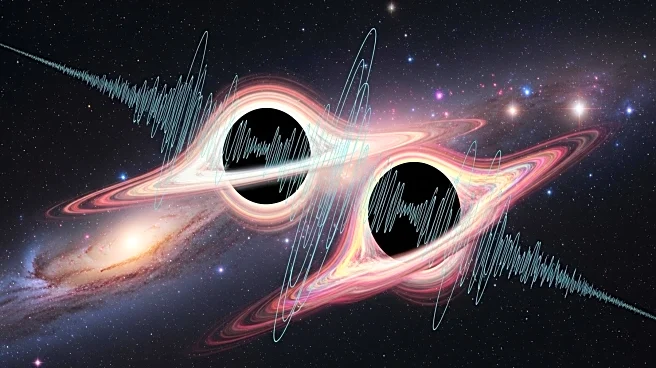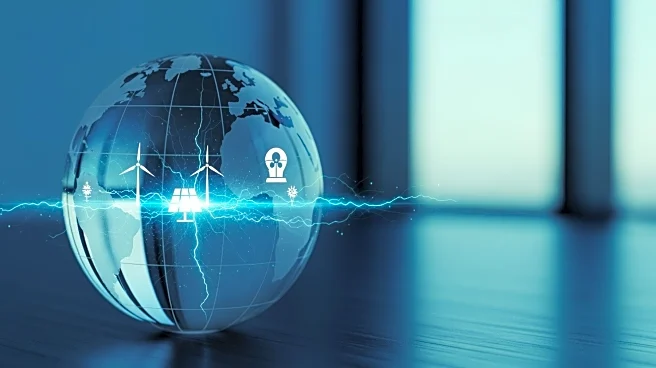What's Happening?
Gravitational wave research has made significant strides, with a new catalog documenting 128 collision events between black holes and neutron stars. This advancement is attributed to the collaborative efforts of the LiGO, Virgo, and KAGRA Collaborations, which have improved detector sensitivity by 25%. These enhancements allow for the detection of fainter signals and enable new investigations into spacetime. The catalog represents a remarkable achievement in understanding cosmic events and the mechanics of the universe, providing insights into the Big Bang and the formation of matter.
Why It's Important?
The advancement in gravitational wave research is crucial for astronomy and our understanding of the universe. By detecting more collision events, scientists can explore the nature of spacetime and the dynamics of cosmic structures. This research offers insights into the earliest stages of matter and the formation of supermassive black holes, which are key to understanding the universe's evolution. The findings could lead to breakthroughs in astrophysics and cosmology, influencing theories on cosmic history and the forces shaping the universe.
What's Next?
Future research will focus on expanding gravitational wave studies to include supermassive black holes that form galaxies. The upcoming Laser Interferometer Space Antenna (LISA) will play a crucial role in this exploration, providing new opportunities to study cosmic events. Continued collaboration among international research teams will be essential in advancing gravitational wave science and uncovering the mysteries of the universe. The findings from this research will inform future studies and potentially lead to new discoveries in astrophysics.









